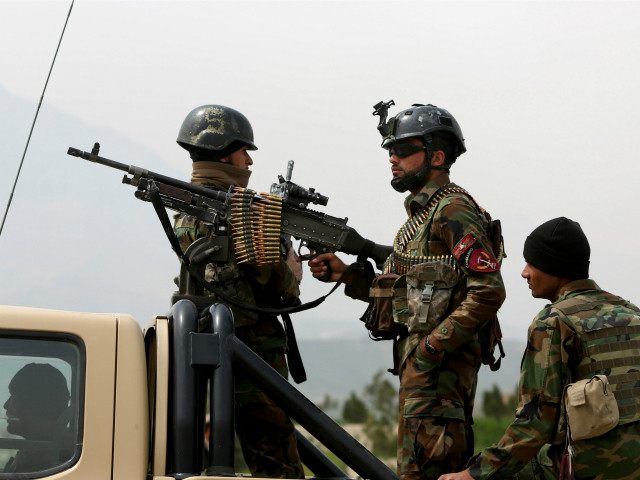The “hostage taking” threat remains “very high” in the wake of the attempted kidnapping of an American citizen and a number of other foreigners in Afghanistan, warns the U.S. embassy in Kabul in an emergency security bulletin.
“An attempted kidnapping occurred in Kabul on May 2, 2016 targeting several expatriates including a U.S. citizen,” reveals the embassy in the security warning issued Thursday. “The U.S. Embassy Kabul reminds U.S. citizens that the threat of kidnapping and hostage taking continues to be very high.”
“There are no further details regarding the targets, timing, or method of any planned kidnappings,” it continues.
NBC News learned from Afghanistan’s Interior Ministry Spokesman Sediq Sediqqi that the attempted kidnapping occurred in a residential neighborhood of the Afghan capital.
The expatriates were traveling in an SUV when their vehicle “was cut off and blocked in by another SUV,” the spokesman reportedly indicated.
“Two men emerged from that vehicle and approached the car carrying the foreigners, which then speedily reversed onto a main road where there is a police checkpoint. At that point the men ran back to their vehicle and sped away,” NBC News paraphrased Sediqqi as saying.
The police are working on apprehending the men, but citing the ongoing investigation have refused to reveal the identify of neither the criminals nor the victims, noted Sediqqi.
Four days prior to the attempted kidnapping, Australian aid worker Katherine Jane Wilson, also known as Kerry, was taken captive in the city of Jalalabad, the provincial capital of the eastern Afghan province of Nangarhar, which sits on the volatile Afghanistan-Pakistan border, a hotbed for terrorist groups.
The emergency security warning issued Thursday cited the U.S. State Department’s travel warning for Afghanistan, which advises that “an ongoing risk of kidnapping and hostage taking exists throughout Afghanistan.”
It also warns that Kabul and other major cities across Afghanistan remain “at high risk for militant attacks, including vehicle-borne improvised explosive devices (VBIED), direct and indirect fire, and suicide bombings.”
In a separate emergency security bulletin issued by the consulate on Wednesday, the chief of the Kabul City Police District 10 Chief of Police warns residents of the Afghan capital “of ongoing threats of suicide and/or coordinated attacks, and kidnapping against International Guest Houses, [United Nations] UN Offices, [International Committee of the Red Cross] ICRC Offices, international and local banks and international and local residences.”
“Kidnapping and abduction for ransom has been a regular occurrence in Afghanistan, with both Afghans and foreign nationals targeted,” reports Reuters. “Last month, there was widespread outrage and protests after reports of the discovery of the murdered body of a teenaged boy who had been kidnapped in Kabul earlier.”
The American embassy did not identify a specific terrorist or criminal group in the security warnings.
According to the New York Times:
The Afghan police believe that many of the kidnappings of foreigners have been carried out by criminal gangs motivated by ransom. The fear is that such groups could sell their hostages to extremist organizations.”
Several of those kidnapped, such as the German and Dutch citizens taken last year, have been released, but it is not known whether ransoms were paid. Afghan citizens working for aid groups are frequently kidnapped while in the field, but in most cases they are released unharmed after negotiations with insurgents and community leaders.
A man and a woman from Germany, a Dutch female, and Wilson from Australia, have been among the foreigners reportedly kidnapped in Afghanistan since last Spring alone.
“There have been rumors of other kidnappings of Westerners, but embassies have not confirmed them,” notes the Times. “In addition, a Canadian hostage, Colin Rutherford, was released in January after being held for five years by the Taliban.”

COMMENTS
Please let us know if you're having issues with commenting.